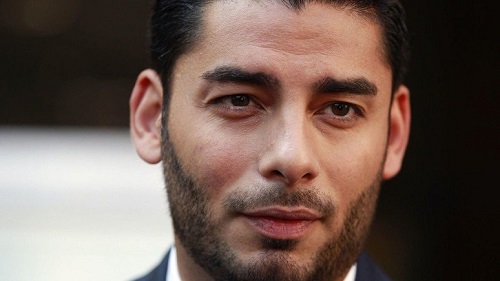
The games opening in Tokyo next month will be the first Olympics to be delayed by a pandemic. For the first Olympics to experience radical Islamic terrorism, dial back to the 1972 games in Munich.
On September 5, 1972, Palestinian terrorists of the Black September faction, disguised as athletes, forced their way into the quarters of the Israeli Olympic team. Weightlifter Yossef Romano, on crutches due to an injury, attempted to disarm a terrorist but was shot dead and castrated, a mutilation not revealed until 2015. The carnage continued and by the next day, the terrorists had killed eleven Israelis. As broadcaster Jim McKay told the world, “They’re all gone.”
The next year, Israeli commandos killed Muhammad Abu Yousef al-Najjar, mastermind of the Munich operation. His son Yasser al-Najjar became a fugitive and in one account came to the United States, though documentation of his arrival is hard to find. When National Public Radio profiled him in 2003, Yasser al-Najjar was an official of the Palestinian Authority living in Gaza.
 In 2012, a man named Ammar Campa-Najjar worked in the Obama administration, which never revealed that Ammar was the grandson of Muhammad Abu Yousef al-Najjar, mastermind of the Munich massacre. That reality emerged in a February, 2018, Haaretz report headlined “Grandson of Munich Massacre Terrorist Is Running for Congress.” The revelation was not in the campaign materials of grandson Ammar Campa-Najjar, which said only that he was “the son of a Mexican American mother and a Middle Eastern immigrant father.”
In 2012, a man named Ammar Campa-Najjar worked in the Obama administration, which never revealed that Ammar was the grandson of Muhammad Abu Yousef al-Najjar, mastermind of the Munich massacre. That reality emerged in a February, 2018, Haaretz report headlined “Grandson of Munich Massacre Terrorist Is Running for Congress.” The revelation was not in the campaign materials of grandson Ammar Campa-Najjar, which said only that he was “the son of a Mexican American mother and a Middle Eastern immigrant father.”
On September 6, 1972, after the massacre of the Israelis, Olympic boss Avery Brundage announced that the games would continue. On September 10, the U.S. men’s basketball team met the Soviet Union in the gold medal game. The Americans were all collegians and the youngest basketball squad the United States had ever sent. The Soviets were older and more experienced, for all practical purposes a professional squad.
In the closing seconds, with the USA behind 49-48, Illinois State’s Doug Collins picked off a Soviet pass and drove for a layup. Soviet player Zurab Sakandelidze knocked the American to the floor with such force that Collins was slow to get up. In one of the great plays of all time, he stepped up to the line and sank both free throws to put the USA ahead 50-49. The Soviets failed to score during the final three seconds and the buzzer sounded to end the game. The USA had won the gold and maintained their perfect Olympic record.
As the Americans celebrated, Renato William Jones, Secretary General of FIBA, the international basketball organization, came out of the stands and ordered the officials to put three seconds back on the clock. Jones, a friend of the Soviet Union, had no authority to make such a demand but the Olympic officials duly complied. They put time back on the clock not once, not twice, but three times. The third time the Soviets scored a basket and an Olympic panel voted 3-2 to give the Soviets the win.
The Americans team of Mike Bantam, Jim Brewer, Tom Burleson, Doug Collins, Kenny Davis, James Forbes, Tom Henderson, Bobby Jones, Dwight Jones, Kevin Joyce, Tom McMillen and Ed Ratleff decided not to show up for the silver because they had won the gold fair and square, on the court. They were right, and there is no other side to the argument. The pro-Soviet Jones wanted the Soviet team to win, confirmed by his post-game statement: “The Americans have to learn how to lose, even when they think they are right.” So the Americans were not only ripped off but taunted.
In 1976, the Olympic games moved to Montreal, Canada. The president of the United States was Gerald Ford, prone to falls and afraid of offending the Soviet Union. Indeed, that year Ford went on record that there was “no Soviet domination of Eastern Europe.” A man of that mindset is not going to demand that the 1972 team get the gold they won, otherwise the United States isn’t coming. The U.S. men’s basketball team won gold at Montreal, but that did not erase the heist at Munich.
President Jimmy Carter took no stand for the 1972 squad and in 1980 boycotted the Moscow Olympics because of the Soviet invasion of Afghanistan. The 1972 Olympians then dropped from the radar, and through the years the case for restoration of their gold grew stronger.
In January of 2017, the International Olympic Committee found that in 2008 Jamaican sprinter Nesta Carter, teammate of Usain Bolt, had violated anti-doping rules. Therefore, the entire Jamaican 4×100-meter relay team would have to return their gold medals, which now belong to the team from Trinidad.
President Trump had a shot at restoring the Americans’ 1972 gold but the pandemic bumped the Olympics to 2021. The addled Joe Biden has failed to act, so for the American team what happens in Munich stays in Munich. For Muhammad Abu Yousef al-Najjar’s grandson, on the other hand, what goes around comes around.
Ammar Campa-Najjar lost his race for Congress in 2018 and 2020 but will doubtless try again in 2022, 50 years after his grandfather masterminded the massacre of 11 Israelis at the Munich Olympics. If anybody called the terrorist’s grandson a Munichian candidate it would be hard to blame them.


Leave a Reply